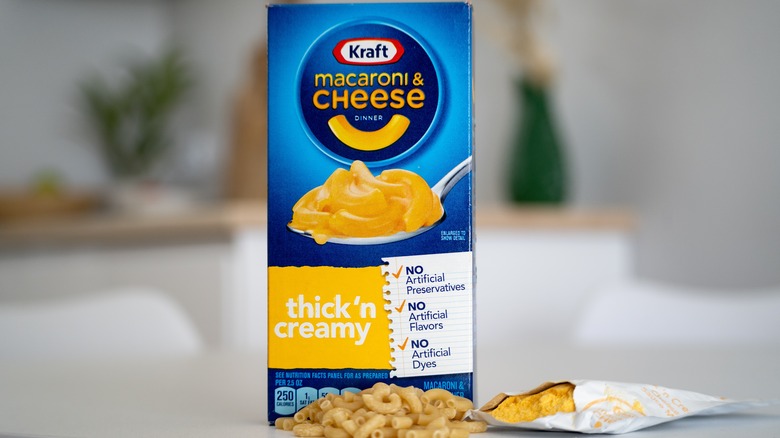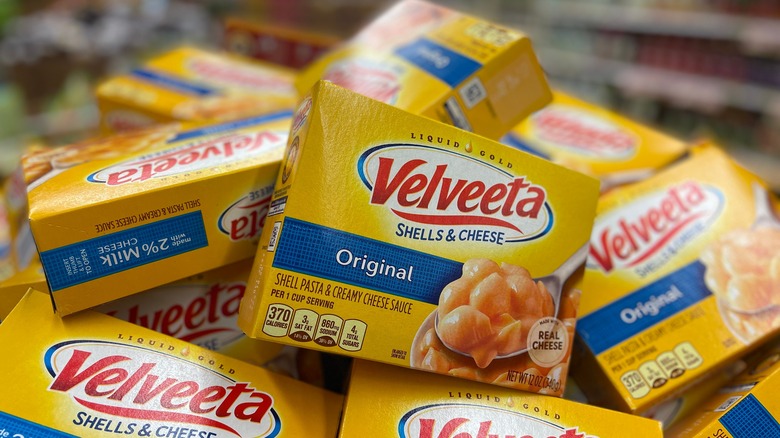Kraft Mac & Cheese's False Advertising Lawsuit Is Making Moves
Your favorite comfort food is about to face legal action due to allegedly false statements made on its packaging. A class action lawsuit against Kraft Heinz for its Mac & Cheese is moving forward after a Chicago judge's ruling on Wednesday. The suit alleges that despite Kraft Mac & Cheese's packaging stating it contains "No Artificial Flavors, Preservatives or Dyes," the macaroni and cheese product does in fact contain preservatives. Plaintiffs from Illinois, California, and New York allege that the boxes from Kraft contain a synthetic form of citric acid and sodium phosphates and that these ingredients function as preservatives. Food companies play fast and loose with their terminology to make artificial preservatives sound natural or even make not-cheese look like cheese, so there could be something to this lawsuit.
Unsurprisingly, Kraft Heinz sought a dismissal for the lawsuit and maintained that its product does not contain any artificial preservatives, artificial flavors, or dyes. "We stand fully behind our product and are proud of its quality," the company said to Reuters. "We strongly believe that this lawsuit has no merit and look forward to our day in court."
The lawsuit is seeking damages for fraud, unjust enrichment, and violations of state consumer protection laws. However, the judge noted that the plaintiffs of the lawsuit were not justified in demanding that Kraft Heinz create new labels for its Mac & Cheese. The judge explained this was because the plaintiffs were now aware of the allegedly false advertising and therefore faced no future harm.
Other false advertising food lawsuits
False advertising allegations are now something many in the food industry are becoming familiar with. Food lawsuits in general are popping up all over the place. Similar to this Mac & Cheese issue, Velveeta was sued in 2022 for alleged false advertising concerning its cook time. The brand's Shells & Cheese label read, "ready in 3 ½ minutes." The plaintiff of the lawsuit found this statement to be false and sued Kraft Heinz for $5 million (the case was ultimately dismissed by the judge).
Fireball, the whiskey brand, also faced a false advertising class action lawsuit in 2023. The suit took issue with the fact that the tiny bottles of Fireball found by the register at most stores and the larger bottles of Fireball sold at liquor stores and supermarkets were in fact two different products. The smaller, cheaper bottles do not in fact contain whisky, instead they are filled with a malt liquor. The lawsuit claimed that because the two products are packaged and labeled so similarly, the brand is misleading consumers. The case is still ongoing.
While it makes for interesting legal debates, it's unlikely we'll see an end to these types of food lawsuits anytime soon. Are consumers just holding companies accountable or are these legal battles getting out of hand? I guess that all depends on how much you care about what's in your Mac & Cheese.

